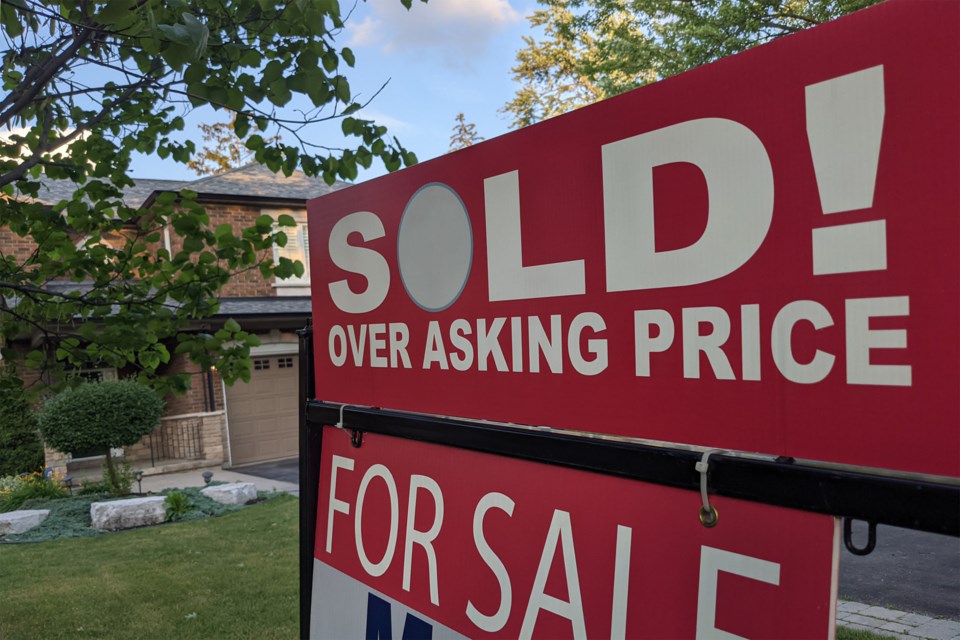Prime Minister Justin Trudeau has asked his housing minister to research whether raising the down payment required on investment properties would help cool the red hot real estate market.
Ahmed Hussen has been tasked with investigating the impact of requiring more than 20 per cent down on a property an investor wants to purchase but not live in, according to his mandate letter.
“The issue of having an investor buy a property purely to speculate on price increases often leads to that housing unit being taken off the market for a family to live in,” the federally-controlled Canadian Mortgage and Housing Corporation told the Daily Hive in a statement.
It’s a perfectly fine first step to tackle the housing crisis – maybe five years ago.
But with runaway real estate prices and record low supply, it falls well short of the kind of bold action needed.
Here’s a radical idea: Cap the number of investment properties a person can own.
Or better yet, ban investment property purchases entirely for a couple of years, much like Ottawa is banning foreign buyers, and let the limited existing supply of residential real estate go to people who are trying to buy or change their principal residences first.
That’s likely too radical for the Trudeau government.
It’s currently dancing around whether it wants to put in an anti-flipping tax on principal residences, which have brought howls of outrage from people who profess to support affordable housing as long as it doesn’t cut into the enormous windfall they expect when they sell their home one day.
If Trudeau wanted to take the fight further, he could dramatically raise the capital gains tax on secondary residences and investment properties, thereby cutting so deeply into profits of speculators that it wouldn’t be worth the hassle for them to play the housing market like the stock market.
Meanwhile, on the provincial side, the BC government could wade in with some bold ideas too if it wanted.
There are several tantalizing ideas floating around.
One involves the provincial property transfer tax, which is an almost $2-billion annual revenue-generator for the province. The PPT is currently 1 per cent on the market value for the first $200,000 of a property, 2 per cent above $200,000 and 3 per cent above $2 million. But what if it was even higher based on the number of investment properties a person owned?
Or, what if the PPT rate was based on the length of time you held the property, acting as a sort of anti-flipping tax? It’s thought that 7 per cent of residential properties currently get sold within a year, so that would certainly strike at the quick-buck investors out there.
Another option to the province could be a land value capture tax – a more complicated scheme but one in which an investor (who owns multiple properties) would be taxed a hefty percentage of the increase in the land value (not the building value) from when they bought a particular property to when they sell it.
It’s an idea backed by the BCGEU, which not only helps curb speculators but also could generate revenue that helps recover the cost of big transit and infrastructure projects that single-handedly with public funding drive up the value of land in certain areas.
If BC wanted to get truly radical, the province could also consider whether residential properties should only be allowed to be owned by people, and not trusts or companies. There would be many wrinkles to consider there, but it would be a bold declaration from the province on who residential real estate is actually for.
In the meantime, BC is studying mandatory cooling off periods in real estate purchases, and perhaps even mandatory home inspections. Those changes will come later this spring, and while welcome from a consumer safety point of view, won’t have any impact whatsoever on the housing market in the province.
Still, there’s lots of ideas out there.
What’s lacking so far from all levels of government has been action.
Mandating a bigger down payment for investors who want to snatch up more properties isn’t nearly bold enough.
Rob Shaw has spent more than 13 years covering BC politics, now reporting for CHEK News and writing for The Orca. He is the co-author of the national best-selling book A Matter of Confidence, and a regular guest on CBC Radio.



